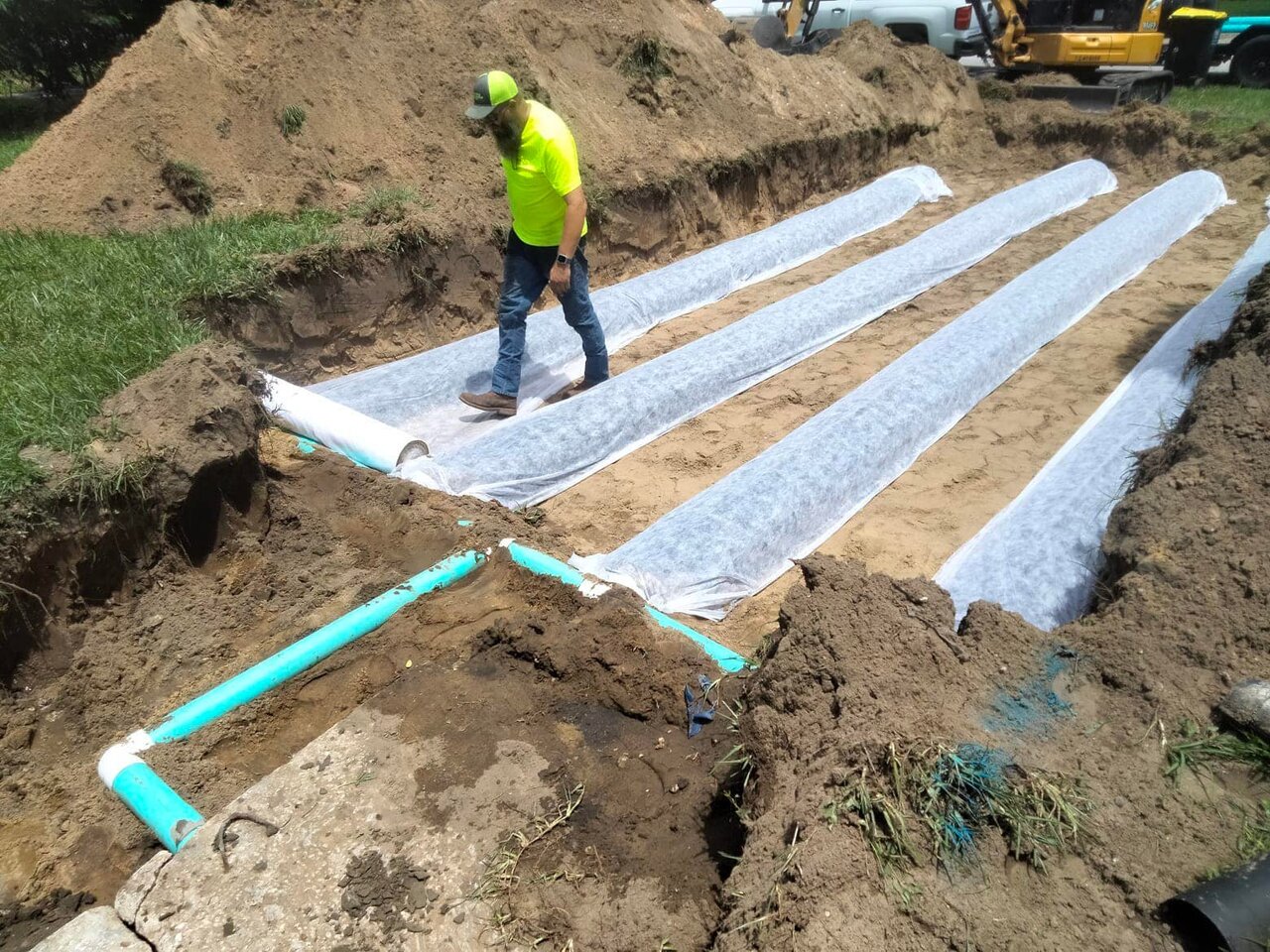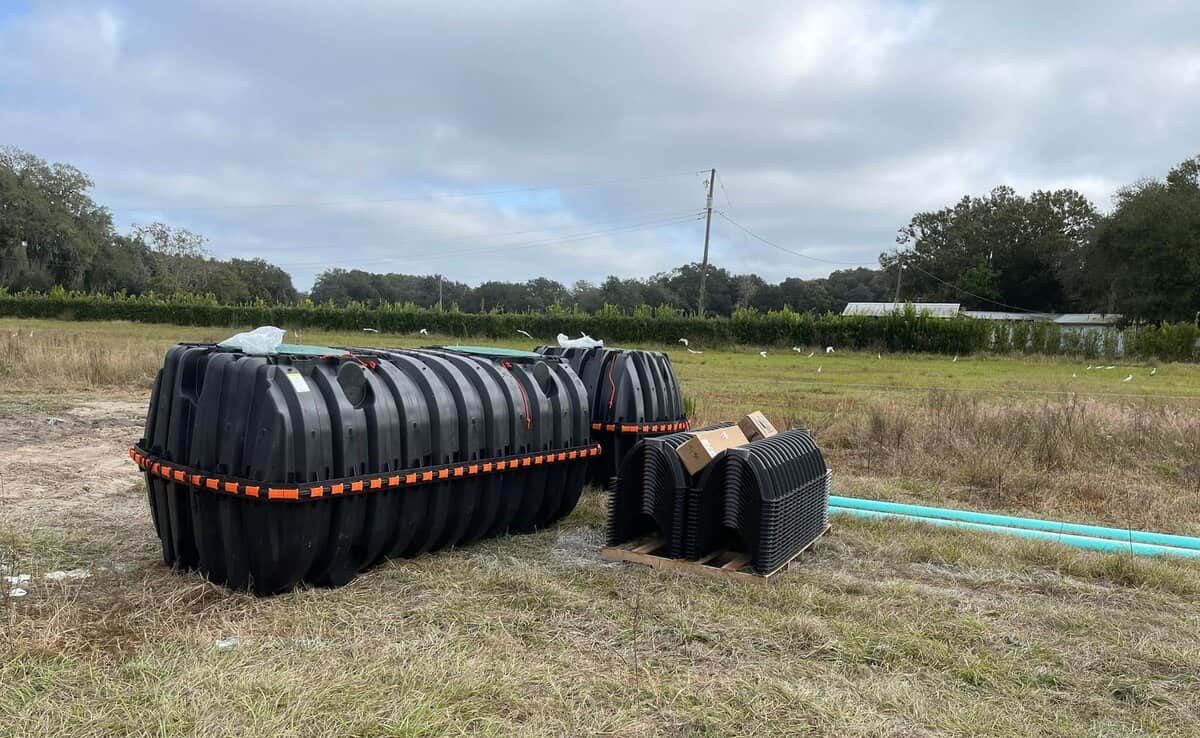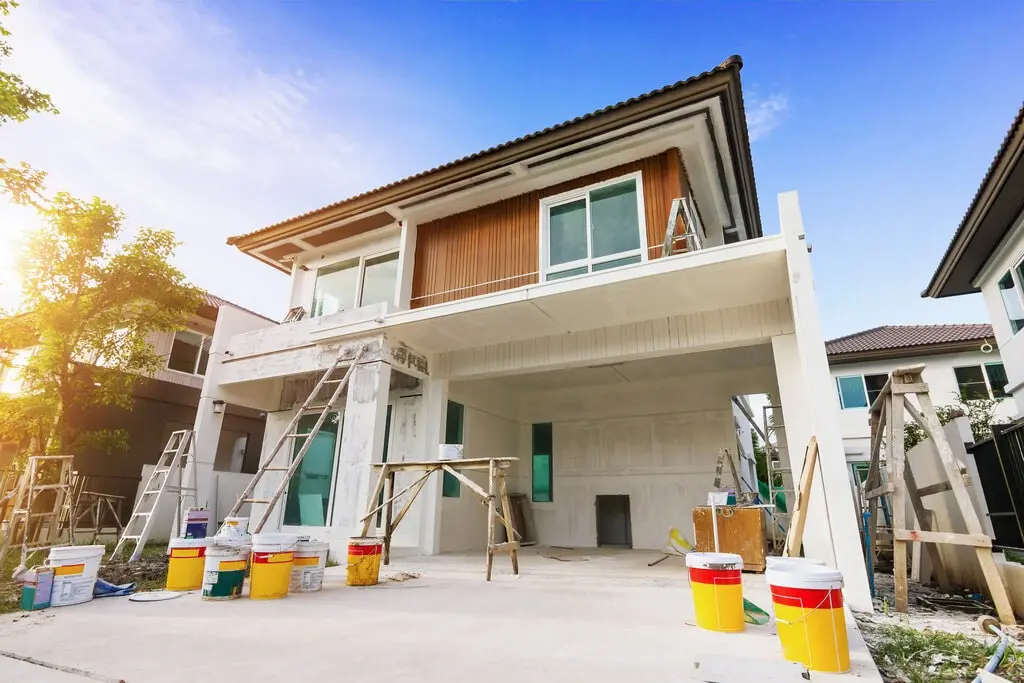A trench or pit is a type of excavation that is used in a variety of industries, including construction, landscaping, agriculture, car washes, and garages. They are designed to collect and store wastewater and debris like mud, gravel, and grit.
Car Wash Example
For example, car washes produce huge volumes of wastewater. During the car wash process, the wastewater and debris that fall from the vehicles accumulate in the trench or pit. Before flowing on, oil and debris are separated out from the water. Over time, this sludge begins to accumulate in the trench or pit, leading to slow drains or even blockages. Pit or trench pumping clears out the sludge and debris, which can help extend the lifespan of the trench and also minimize the likelihood of expensive repairs in the future.
Trench Pumping or Pit Pumping
Pit or trench pumping is the process of removing wastewater and sludge from a pit or trench. This can be done using a pump, gravity, or a combination of both.
Trench or pit pumping is an important component of trench and pit maintenance and waste flood prevention. Trenches or pits that are not pumped can overflow, resulting in a filthy atmosphere with health risks.
Here is what happens when a septic professional does trench or pit pumping:
- Waste from the trench or pit is pumped out, similar to the way that septic tank pumping is done.
- The area in and around the pit is pressure washed to remove debris.
- Waste is removed and disposed of properly according to local regulations and ordinances. Some waste may be hazardous and require special care.
- Additional services may be necessary, including cleaning the oil-water separators and pumping the catch basin.
- The septic technician will conduct an Inspection of the entire system and suggest remedies for any potential problem areas that they note.
An unmaintained or improperly maintained trench or pit can lead to serious problems, like slow drainage, backups, foul odors, and, ultimately, to expensive repairs. To maintain your property it is always advisable to set up a regular maintenance schedule with a professional septic company to have your trench or pit pumped and inspected.

Commercial Septic Services
Residential properties typically do not have trenches or pits, so homeowners do not usually have a need to worry about trench or pit pumping. (Note that the trenches that are being referred to here are different than those that are very commonly found in drainfields, which help process the waste from a septic system.)
This is just one of the ways that commercial septic systems are different than residential septic systems. Here are a few others:
Commercial Septic Systems Are Usually Larger
Most commercial septic tanks are significantly larger than residential tanks, because businesses typically need to process a great deal more wastewater. Compared with a typical household of 3-6 people, a commercial septic system may need to be able to handle hundreds of times more than that. In fact, commercial septic tanks can be as large as 500,000 gallons! By comparison, most residential septic tanks are able to process 750 to 1,200 gallons.
Commercial Septic Systems May Include More Treatment Methods
Because of the large volume of wastewater, the treatment of commercial wastewater sometimes involves additional steps that are not typical in residential septic systems. For example, it is sometimes necessary that the effluent in a commercial septic system gets pre-treated to ensure that the septic tank can effectively break down the solids. Commercial septic systems might also have grease traps, use several small septic tanks that drain to a dry well, or rotate to different absorption fields.

Commercial Septic Systems Need More Frequent Maintenance
It is generally recommended that residential septic tanks be pumped every three to five years, but most septic professionals suggest pumping a commercial tank much more often – at least once per year, if not more frequently. Additionally, it is even more important for businesses that process a lot of wastewater to have frequent and regular inspections to identify issues before they become more serious.
Here are a few reasons that regular maintenance is vital for business property owners:
- There is a much higher risk that a commercial septic system’s failure could impact the local groundwater and drinking water supplies. Enforcement options like fines can be levied, and, in some cases of negligence lawsuits can be filed.
- Many businesses produce a higher percentage of septic tank contaminants. For example, many restaurants create a great deal of wastewater that is contaminated with fats, oils, and grease (FOG). Over time, FOG can cause clogs in pipes, the septic tank, or even the septic drain field.
- Dealing with septic problems is challenging for homeowners, but for businesses that rely on maintaining continuous operations, a septic issue can be devastating. Being forced to close the business while the septic problem is resolved can be an enormous – and sometimes insurmountable – financial burden.
- During a commercial septic tank pumping, a septic professional can also inspect the tank and the rest of the system, potentially heading off problems before they necessitate costly repairs.
- Septic companies who are experienced with commercial septic systems know that there is an ideal level of solid, effluent, and scum in the septic tank, based on what type of business it is. They can measure the levels during an inspection or cleaning to ensure that there are no signs of problems.
- A properly maintained septic system with corresponding documentation of all services with dates will make future buyers have more confidence that they will not have issues if they purchase the property.
Septic Service In & Near Lakeland
When you need the best septic company in & near Lakeland, contact Septic and Drainfield Depot. We offer a complete range of commercial and residential septic services, including;
- Septic tank pumping
- Septic tank cleaning
- Septic system installation
- Septic system maintenance
- Septic system repair
- Drainfield installation
- Drainfield repair
- Lift stations
Our licensed and insured septic company employs experienced technicians who have hundreds of hours of hands-on training.
Get in touch with Septic and Drainfield Depot today. Call us at 863-563-3639!







